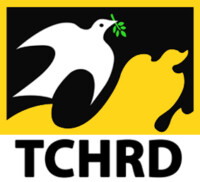Chinese President Jiang Zemin claimed, “China’s citizens enjoy the freedom of assembly, speech and demonstration and protests”, during his visit to Canada on November 29, 1997. In contrast with this, hundreds of Tibetans have been arrested by Chinese authorities solely for voicing their opinions or gathering to peacefully call for human rights respect in Tibet. Four new cases of Tibetans arrested for expressing their religious and political views have been received.

Menpa Dorjee, a 55-year-old from Rebkong County in Tsongon (Ch: Qinghai) County, was arrested in March 1997 for hanging the Tibetan national flag in the middle of the street of Rebkong City during Monlam (prayer) festival. Public Security Bureau (PSB) officials subsequently raided his room and confiscated documents and books on Tibet. He was sentenced to one year and six months imprisoment in early November this year.
Menpa Dorjee was a physician in allopathic medicine, which he learned from a famous allopathic doctor called “Barefoot Doctors” during the Cultural Revolution. In the early eighties, he worked in different religious activities and later in 1986 he bought a zerox machine and used it to make copies of documents and books on Tibetan independence.
Menpa Dorjee has extensive knowledge of traditional Tibetan language, medicine, history, art and calligraphy. He used to write rare Buddhist texts for the monastery, draw portraits, and made a computer script for Tibetan language.
Ngawang Tendar is a 29-year-old monk from Jampa Ling Monastery in Tsawa Pomda Village in Chamdo Region under “Tibet Autonomous Region”. He joined the monastery in 1990.
On 1 August 1995, Ngawang with three other friends went to the annual summer picnic festival. When they felt that the crowd had grown big enough they started shouting pro-independence slogans such as “Free Tibet” and “Long Live His Holiness the Dalai Lama”.
They were subsequently arrested by the Tsawa Pashoe County PS B and were then handed over to the Chamdo PSB. The other three monks were released after three months of imprisonment. However, Ngawang was regarded as having spearheaded the demonstration and continues to be held without charge.
Pentse, a prisoner in Lhasa’s Drapchi prison, reportedly shouted “Free Tibet” during a visit by a foreign delegation to the prison. Two other prisoners also supported Pentse’s comment. The three prisoners were said to have been put in a dreaded cell and threatened with execution.

Ngawang Phelgay is a 26-year-old monk from Drepung Monastery. On 22 October 1997, he reportedly brought down the Chinese National Flag hoisted on the Drepung Monastery and tamped on it. He was subsequently arrested and interrogated for his actions.
During the time of interrogations he is reported to have said, “No one instigated me to do this. I am doing this out of sheer frustration for the presence of work teams in the monasteries who have deprived us of the right to freedom of religion”.
Tsultrim Dhargey, a 26-year-old monk, was said to be in a state close to death following more than two years detention, according to a new arrival from Tibet (name withheld) who met with him on 13th October 1997.
Tsultrim is from Ragya Monastery in Machen County, Golok Tibetan Autonomous Prefecture under Tsongon (Ch: Qinghai) Province. He first visited India in 1990 for pilgrimage and studied in Sera Monastery in south India until his return to Tibet in 1993.
While crossing the Himalayan border, Ngawang and two of his friends were arrested by the PSB of Nyalam County and detained for a few days. They were then transferred to Lhasa PSB and later to Qinghai Province PSB. They were released after two months of severe interrogations and torture. In May 1994, Tsultrim was arrested by the Public Security Bureau of Machen County and detained for 6 months.
In July 1995, Tsultrim was again arrested by the Machen County PSB and detained for 20 months. During his detention he was reportedly beaten by PSB officials on many occasions and injected with a toxic fluid which caused him to lose consciousness. When he was released in February 1997, he was beyond recognition even of his family.
